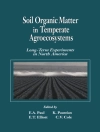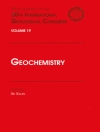Carbon is chemically versatile and is thus the body and soul of biological, geological, ecological and economic systems. Its appropriation by humans through diversion of its biogeochemical cycle has been a mainstay of development. This domestication is characterized by a number of thresholds: control of fire, development of agriculture, expansion of Europe, fossil-fuel use and biotechnology. All have exacted an environmental toll, not least being climatic change and biodiversity loss. Carbon management now and in the future is a ‘hot’ political issue.
There is no existing book which focuses on the pivotal role of carbon in the environment and society and the ways in which carbon has been domesticated in time and space to generate wealth and political advantage. Students of environmental science, geography, biology and general science will find this work invaluable as a cross-disciplinary text.
Inhoudsopgave
THE CHEMISTRY OF CARBON.- THE BIOLOGY OF CARBON.- THE GEOLOGY OF CARBON.- THE HISTORY AND CONSEQUENCES OF CARBON DOMESTICATION.- THE GEOGRAPHY OF CARBON.- THE POLITICIZATION OF CARBON.- CONCLUSION AND PROSPECT.












